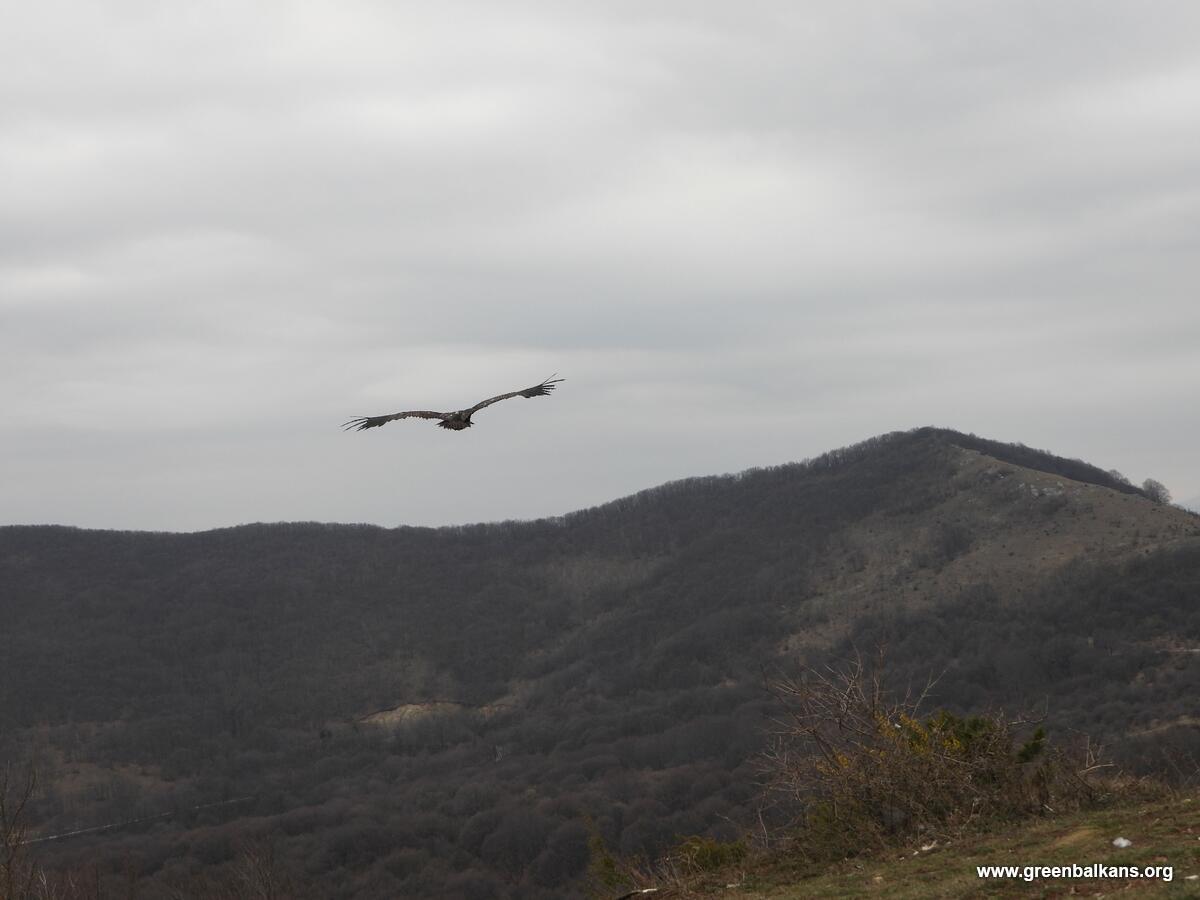Over 150 people from all over Italy participated in a conference on the role of feeding stations for the conservation of scavenger bird species, that took place on February 19 at the Regional Natural Reserve Monterano, organized as part of the LIFE+ Monti della Tolfa.
The conference gathered experts and conservation managers that have worked in several projects across Europe, including at least 5 LIFE projects, where feeding stations were used as a tool for the conservation of endangered species like the red kites, griffon vulture or the globally Endangered Egyptian Vulture.
The conference has also highlighted the threats to scavenger birds posed by poisoning, the use of lead in hunting ammunition and the use of veterinary drugs toxic to scavenging birds, such as diclofenac, an anti-inflammatory that is deadly to various species of vultures and is legally available in Italy and Spain. Its widespread use in India has caused a massive vulture population crisis there.
The main conclusions of the meeting were as follows:
• Feeding stations are, in certain contexts, important tools for the conservation of scavenging birds, particularly for young individuals, populations newly reconstituted and at stopover sites during migration;
• They alone are not the solution for the conservation of these species and should be used together with other actions (eg. antipoisoning campaigns);
• Should be designed to maximize the impact on the target species, while minimizing the negative side effects;
• Decision regarding their establishment should be taken on a case-by-case basis: there is no generic protocol that applies to every situation, but a feasibility study be conducted that analyses the ecology of the target species and the surrounding human context;
• The effects on target species should be evaluated by long-term monitoring, and their management should be adaptive, considering any problems and issues;
• The costs of management and maintenance, meat supply and of the permitting procedures should not be underestimated;
• These feeding stations have also the potential to interfere with the natural foraging behavior of some species;
• It may be useful to sign agreements with suppliers of meat in the area, farmers or slaughterhouses, and close scrutinize their procedures, so that all veterinary legislation is fulfilled. For the providers, there are opportunities to be labeled as “friends of the vultures”;
• Video cameras allow for a better identification of the individuals attending the feeding station, including individual recognition if birds are ringed;
• In Italy there are less than 10 feeding stations – in Spain more than 200. Unlike in other countries, there is no law that promotes the use of the carcasses that die in the fields – according to Italian law they need to be removed and incinerated or buried, at a very significant cost to the taxpayer, and removing valuable food resources from the food chain;
• In recent years the Italian Ministry of Health has regulated the use of meat from various sources for the supply of feeding stations and has arranged a special database, according to the specific requirements laid down in Regulation 1069/2009 ex (EC) No. 1774/2002;
• In the period 2008-2012, the EU has invested a minimum of €11 million on the conservation of scavenging species, through 67 different projects;
• The anti-inflammatory drug Diclofenac should be banned in Europe and in Italy, as was done in India, as it is highly toxic for several species of vultures;
• Feeding stations should not take in carcasses of animals treated with antibiotics and anti-inflammatory drugs, and in particular those animals treated with medicines containing the active ingredient of Diclofenac;
• An enhanced dialogue between experts and decision makers in the fields of human health, veterinary medicine and nature conservation should take place on this matter, both at both national and local level so that there is better information and coordination on the establishment of and the feeding stations and their management.
•Feeding stations have an enormous potential educational value, and they can have positive economic effects for local communities (from saving the costs of disposing of carcasses to local ecotourism projects)
•Not surprisingly, the ecotourism activities associated with the vultures have already been identified as one of the main markets of ecotourism development.
The VCF was also present at the meeting, through Fulvio Genero, a member of the VCF scientific advisory committee.
For more information, please check http://www.lifemontidellatolfa.it/index.php?option=com_content&view=article&id=142%3Agrande-successo-del-convegno-sulla-tutela-dei-rapaci-attraverso-luso-dei-carnai-febbraio-2015&catid=50%3Acomunicati-stampa&Itemid=81&lang=it



